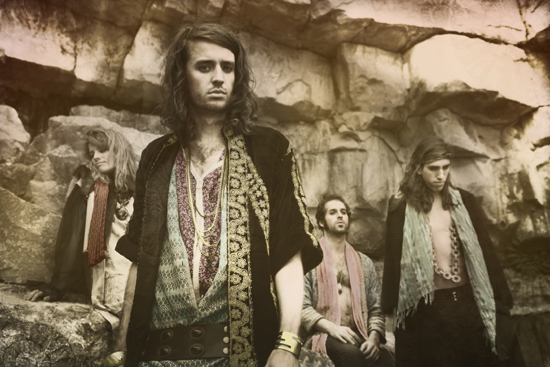In the eyes of the Basque people, it’s hard to avoid the political
That’s especially the case when you look at what happened there.
But you need to look beyond the recent history
There’s a rich history of the area and its position in the world before the 20th Century. It’s always been this passageway through the Pyrenees between France and Spain. One of the oldest geographers, Benjamin of Tudela Is thought to have been Basque, they were among the first explorers and are some think they discovered America before the Vikings got there. Columbus’ ship was manned by Basques, and he had to learn the language to communicate with his crew. There are so many strands of history that we wanted to help shed light on.
The character of the Basque is quite hard to penetrate
From what I’ve read and seen they’re very much individualists, it’s all about self-preservation. That’s something that we associated with, taking on that individualism, taking on that identity. A lot of the girls we had singing on the record actively went out there to find Basque and Spanish girls to talk to about how to sing correctly, and to ask about how they viewed our story, and the music and how it related to their lives.
The true version of the song is the one that has just been sung
We wouldn’t want to claim that our versions are the correct versions, because we stray quite far away. Often it might be a riff or a melody that’s a couple of hundred years old that we’ve taken and modified and worked in. There are pieces that are right in the heart of what we’re doing but you might not know that. It’s a type of sampling in a sense, just not in the traditional way. It’s sampling the original musical music and bringing it to new life.
It’d be wrong to misrepresent Basque culture or for us to be cultural revivalists
We did a Spanish version of Xtatic Truth For the European release, and we tried to get a txistu player and a trikitixa player. As we moved through the project the intensity increased because we felt like it’s an important part of the identity of the band, and we feel that we have to be true to it. We wanted to take the songs out of their traditional context and bring some of ourselves to it. There’s a legitimate dance music production that can be applied to this music and hopefully gain the respect of the people in the Basque country who listen to this music.
Basque songs are often quite nationalistic
They’re about the fatherland, you’re father’s house. There’s a sense of disenfranchisement with the earlier line of Basques, partly because of their position in the world and because during the Second World War many thousands of Basques were sent to England, France and different parts of Europe. There’s a diaspora of sorts. There’s the idea that if the house with your father’s name on it still exists, then it belongs to you, you are Basque.
There are a lot of instruments that are similar to English folk instruments
The txistu is a three-holed bitonic pipe which has a really distinct sound. Then there’s the txalaparta which came from the cider manufacturing process. They’d take the wood from the large barrels and play them. I’m not sure how they came to use it in this way but the hard wood makes a really warm tone. It seems to me that it doesn’t feature so much in the classical side of things, or church music. The txistu seems to be more to do with the church and the parades, whereas the txalaparta stands alone as an instrument that doesn’t tend to be played with much else, and is played without much tuning.
The rhythms are especially fascinating
There are strange rhythmical traits that they have, like you only play cha-kung, that’s the only rhythm you can do, but because you have two or three people playing it it’s the interweaving rhythms that make up the polyrhythms. It gets quite intense, they start off slowly, but it speeds up. It’s part of the tribal sound, probably the oldest drums in the world were wood on wood, and that’s one of the things that first appealed to us.
People appreciate what Crystal Fighters are trying to do with Basque music
Obviously there’s a bit of confusion as to why we’re doing it, but when we start playing the instruments like the txalaparta or the txistu we get a rapturous reception, people are really excited about it. And I suppose that goes along with a sense of revivalism after years of repression, musical with the dominance of the Spanish guitar, and this misguided, Franco period. Now they’ve got a real pride in their cultural history and that’s something they appreciate in what we do.
Music throughout Spain is far more radical than here
We met some really interesting players. There are quite a lot of people playing in the streets, and we’d talk to them. There were Basque dudes who’d teach us how to play the txalaparta and some of the ethos behind it. There’s quite an electronic movement over there, and also a strong youth movement, both in the Basque country and through Spain. There are punk groups like Sinistro Total and Eskorbuto. There are Basque bands who are hugely popular through Spain who are very anti-politics, and write these amazing pop songs. There are huge raves too, you hear stories of people starting parties on Friday and coming back Monday, extremely lawless, drug-fuelled parties. Still to this day playing in Spain it’s later, and wilder. Where in the rest of music club culture has become homogenised, there’s still an edge, still a rawness to it. Obviously the regionalism of Spain continues, people have their own way of doing things, and it’s really exciting.


